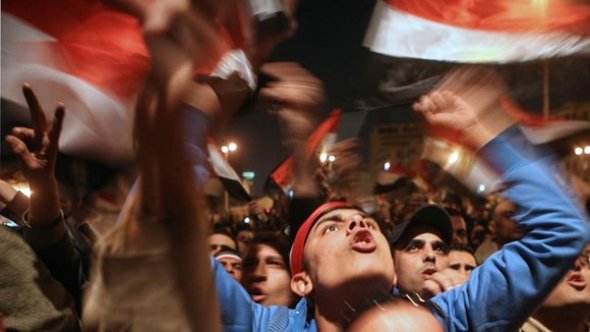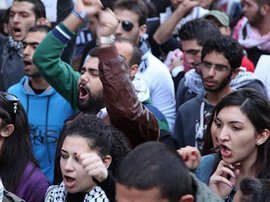Beyond the Authority of Religion and the Rule of Family Clans
Mr. Saghieh, your current book, Killer Issues, begins with an in-depth analysis of three different types of totalitarian regime: National Socialism, Communism and Baathism. You seek to highlight the special features of non-European totalitarianism based on the example of Iraq. How did you become interested in the Iraqi experience?
Hazem Saghieh: After the fall of the Baath regime in Iraq in 2003, I began to study the Baath dictatorship because it seemed to me to be an extremely instructive case. The Iraqi brand of totalitarianism under Saddam Hussein is exemplary of totalitarian forms of rule all over the Arab and Third World.
Furthermore, Iraq is also a prime example of a society made up of various ethnic groups, denominations and religions. But the country also has a deeper significance for me personally, as I have met many Iraqis in London and have witnessed a number of personal and familial tragedies.
With the upheaval now sweeping through the Arab world, do you fear a return to totalitarian forms of rule – this time possibly in religious guise?
Saghieh: I can't rule out that a new form of totalitarian rule cloaked in religion may arise in an Arab nation, especially in view of the catastrophic economic conditions in some of the Arab countries.

But there are a few "guarantees" or reasons that would militate against this happening, namely the interest on the part of the Arab states currently undergoing transformation to cooperate economically with the Western world, an interest that is guiding the new power elites in a different, more politically open, direction.
Besides, the new youth protests and uprisings in the Arab world represent an epochal break with what were formerly declared to be sacred authorities in this region. If the religious parties that have come to power through democratic elections in the post-revolutionary Arab states play by democratic rules, then we will have taken a major step in the direction of democratisation.
But up to now, the Arab republics and monarchies have mainly been based on family ties, cultivating a pronounced clan culture that hinders any form of modern participation.
Saghieh: Yes, you're right as far as the role of tribal membership is concerned. But we must not forget that the legitimacy of conservative Arab monarchies comes from a different, traditional base. And some of these monarchies, especially in the Gulf region, have – thanks to their oil reserves – the ability to buy themselves societal loyalties. Therefore, these systems of rule have little to do with totalitarian regimes in the modern and ideological sense. They represent instead an Oriental and primitive form of despotism.
You speak in your new book of a "poor" and a "rich" Islam. The first is more fundamentalist and the second more pluralistic. You also see parallels between fascism and radical fundamentalism. Isn't that a culturalist point of view that ignores the fact that "poor" Islam is above all a product of the socio-economic crisis?
Saghieh: Perhaps it is a culturalist perspective, but can we really in all seriousness deny that "poor" Islam has brought forth populist movements and demagogues such as the Iranian revolutionary leader Khomeini and the Islamist trailblazer Sayyid Qutb in Egypt, who blocked far-reaching reforms in the religious and social spheres?

Despite all the criticism that can justifiably be levelled at it, the Islam of the "Makhzen", i.e. the elite network in Morocco that remains loyal to the royal family, is still more tolerant and more progressive than all of the radical or "socially revolutionary" variations of Islam.
You also criticise the Gulf states in your analyses and in a way deconstruct the cultural, psychological and political dimensions of Dubai's gigantic "tower politics". Can these grandiose edifices replace a parliament, as those in power in the Gulf region seem to think?
Saghieh: Of course not. I don't think that the soaring towers of Dubai can pave the way towards a modern democratic state – the way a parliament could. I believe that it is important to instead lay the groundwork for a civil society that goes beyond the authority of religion and the logic of the family clan. Material and architectural modernisation alone might even have the opposite effect of shoring up these old, pre-modern structures.
The last chapter of your book is devoted to the political state of affairs in your home country, Lebanon. You conclude that Lebanon has missed its opportunity to establish a pluralist democracy. Does that mean that the denominational fragmentation that currently prevails there would nip any future democratic development in the bud?
Saghieh: It is evident that sectarianism and the various denominations are the dominant forces in the country – and this in a region that is currently experiencing a rebirth of religion and of narrow-minded identities.
This appears to be unavoidable, especially as this return to religion is hallmarked by an extremely dangerous polarisation between Sunnis and Shias. This is a major conflict that threatens to destroy large swathes of the Islamic world, and one from which Lebanon, a small country, is not likely to escape unscathed.
Interview: Rachid Boutayeb
© Qantara.de 2012
Hazem Saghieh is a well-known political analyst and editor at Al Hayat, the leading pan-Arab newspaper.
Translated from the German by Jennifer Taylor
Editor: Aingeal Flanagan/Qantara.de
